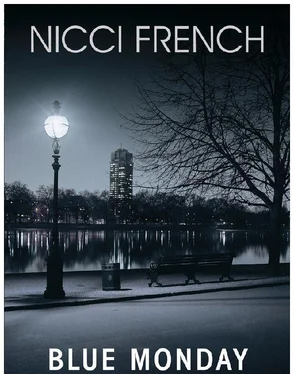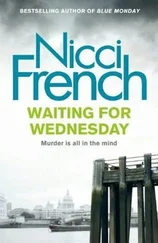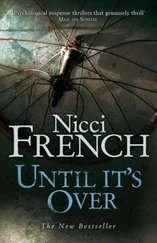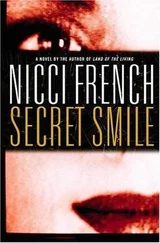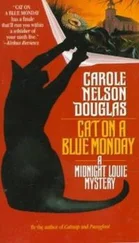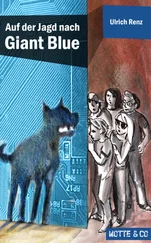He remained a gifted analyst, but in recent years something had happened. He had read somewhere that airline pilots, after decades of flawless service, could develop a fear of flying. He had heard of old actors who had suddenly experienced stage fright so debilitating that they could no longer perform in the theatre. He had heard of an equivalent fear of analysts, which was the dread that they weren’t real doctors, that they couldn’t offer the kinds of cure that other branches of the profession could, that it was all just talk, smoke and mirrors. Reuben had never experienced that. What was a cure, really, after all? He knew he was some kind of a healer. He knew he could do something for the people who came to him, wounded in ways they couldn’t express.
It was simpler than that, more embarrassing. Suddenly – or was it gradually? – he had started to find his patients boring. That was the real difference between analysis and other forms of medicine. In the latter, the patient presented and you examined his arm or scanned her breast or looked under the tongue. But if you were an analyst, you had to hear the symptoms over and over again, going on and on, hour after hour. In the early years, it hadn’t been like that. Sometimes Reuben had felt he was listening to a particularly pure form of literature, an oral literature, that needed interpreting, decoding. Gradually he had come to think it was a terrible kind of literature, clichéd and repetitive and predictable, and later that it was no kind of literature at all, just an outpouring of unformed, unreflective verbiage, and he had started to let it flow past him, like a river, like traffic, like when you stand on a motorway bridge and watch cars and lorries rush under you, people you know nothing about and care nothing about. They would talk and sometimes cry, and he would nod and think about other things and wait for the cigarette that was coming at exactly nine minutes before the hour.
‘These thoughts were like a cancer,’ said Alan. ‘You know what I mean?’
There was a pause.
‘I’m sorry?’ said Reuben.
‘I said: “Do you know what I mean?” ’
‘In what way?’
‘Were you listening to what I was saying?’
There was another pause. Reuben sneaked a look at his watch. They were twenty-five minutes into the session. He had no memory of anything that had been said. He tried to think of something to ask. ‘Do you feel you’re not being listened to?’ he said. ‘Can we talk about that?’
‘Don’t give me that,’ said Alan. ‘You haven’t been paying attention.’
‘Why do you say that?’
‘Tell me one thing I’ve said. Just one thing. Anything.’
‘I’m sorry, Mr… erm…’
‘Do you even remember my name? It’s James.’
‘I’m sorry, James…’
‘It’s not James! It’s Alan. Alan Dekker. And I’m leaving and I’m going to complain about you. You’re not getting away with this. You’re not someone who should be seeing patients.’
‘Alan, we need to -’
Both of them stood up and for a moment they confronted each other. Reuben reached forward to catch hold of Alan’s sleeve, but then hesitated and raised his hands, letting him go.
‘I can’t believe this,’ said Alan. ‘I said it wouldn’t do any good. They said you’ve got to give it a chance. It’ll help. Just co-operate.’
‘I’m sorry,’ said Reuben, in a whisper, but Alan was no longer there to hear it.
On Friday afternoon Frieda was at the clinic again, collecting books from its little library for a talk she was going to give in a few weeks’ time. Most people had already gone home, but Paz was still there and beckoned her over.
Paz had only been at the Warehouse for six months. She had been brought up in London and spoke with an estuary accent, but her mother was from Andalucía and Paz herself was dark-haired, dark-eyed. She was intense and added a certain melodrama to the clinic, even on calm days. Now there was a sense of extra urgency about her.
‘I’ve been trying to call you,’ she said. ‘Did you talk to Reuben?’
‘You know I did. Why? What’s he done?’
‘First off, he simply didn’t turn up for his patients this afternoon. And I can’t get hold of him.’
‘That’s bad.’
‘There’s more. This patient.’ Paz looked at the paper in front of her. ‘He was in distress, having panic attacks, and he was sent to Reuben by his GP. It went badly. Really badly. He’s going to make an official complaint.’
‘What about?’
‘He says Reuben didn’t listen to a word he said.’
‘What does Reuben have to say about it?’
‘He’s said bloody nothing. He probably thinks he can get away with it. Maybe he can. But he’s messed this patient around. And he was angry. Very angry.’
‘It’ll probably sort itself out.’
‘That’s the thing, Frieda. Sorry to land this on you. But I sort of already persuaded him – Alan Dekker, I mean – not to do anything until he’d talked to you. I thought you could maybe take him on yourself.’
‘As a patient?’
‘Yes.’
‘Oh, God,’ said Frieda. ‘Can’t Reuben sort out his own disasters?’ Paz didn’t reply, just gave her a pleading look. ‘Have you talked to Reuben about this? I can’t just take his patient away.’
‘Kind of.’
‘What does that mean?’
‘It means that he isn’t really talking. But I gathered he wanted you to take him on. If you would.’
‘All right. All right. I can do an assessment, I guess.’
‘Tomorrow?’
‘Tomorrow’s Saturday. I can see him on Monday. Half past two at my place.’
‘Thanks, Frieda.’
‘In the meantime, check out Reuben’s schedule and think about transferring other patients as well.’
‘You think he’s that bad?’
‘Maybe Alan Dekker was just the first to notice.’
‘Reuben won’t like it.’
Every Friday, Frieda walked to Islington to visit her niece, Chloë. It wasn’t a social call: Chloë had just turned sixteen and would take her GCSEs in June, and Frieda was giving her extra tuition in chemistry, a subject that Chloë (who thought she might want to be a doctor herself) regarded with a mixture of loathing and rage, almost as if it were a person who was out to get her. It had been her mother Olivia’s idea, but Frieda had only agreed to it once Chloë herself had grudgingly committed herself to one hour each Friday afternoon, from four thirty to five thirty. She hadn’t always stuck to it. Once she hadn’t turned up at all (but only once, after Frieda’s reaction); quite often she slouched in late, banging her folders down on the kitchen table, among all the unwashed dishes and the piles of unopened bills, glaring at her aunt, who would ignore her moods.
Today they would be working through covalent bonding. Chloë hated covalent bonding. She hated ionic bonding. She hated the Periodic Table. She hated balancing equations. She abhorred converting mass into moles and vice versa. She sat opposite Frieda, her dark blonde hair hanging down over her face and the sleeves of her over-sized hoodie pulled over her hands so that only her fingers, with their black-painted nails, showed. Frieda wondered if she was hiding something. Nearly a year ago now, Olivia had rung Frieda up, hysterical, to say that Chloë was cutting herself. She did it with the blade from her pencil sharpener or the needle on her compasses. Olivia had only discovered because she’d opened the door of the bathroom and seen score marks over her daughter’s arms and thighs. Chloë had told her that it was nothing, she was making a stupid fuss, everyone did it, it didn’t do any harm. Anyway, it was all Olivia’s fault, because she didn’t understand what it was like to be her, the only child with a mother who treated her like a baby and a father who had run off with a woman not much older than his daughter. Disgusting. If that’s what it meant to be an adult, she never wanted to grow up. Then she’d locked herself into the bathroom and refused to come out – at which point Olivia called Frieda. Frieda had arrived and sat on the stairs outside the bathroom. She told Chloë that she was there if she wanted to talk, and would wait for an hour. Ten minutes before her time was up, Chloë emerged from the bathroom, her face swollen with weeping, new marks on her arms, which she’d shown to Frieda with an angry defiance: There, look what she made me go and do … They had talked – or, rather, Chloë had blurted out half-articulated sentences about the relief of running a blade over her skin and watching the bubbles of red form, her rage about her pathetic father and, oh, God , her drama queen of a mother, the revulsion she felt at her own adolescent, changing body. ‘Why do I have to go through this?’ she had wailed.
Читать дальше
